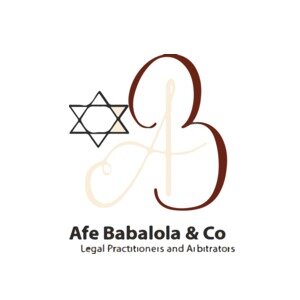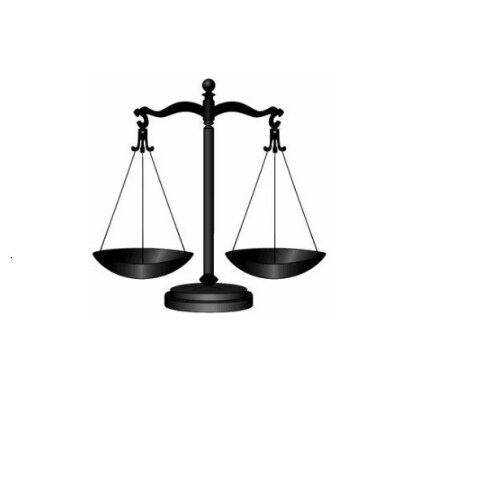Best Mortgage Lawyers in Port Harcourt
Share your needs with us, get contacted by law firms.
Free. Takes 2 min.
Free Guide to Hiring a Real Estate Lawyer
List of the best lawyers in Port Harcourt, Nigeria
About Mortgage Law in Port Harcourt, Nigeria
In Port Harcourt, Nigeria, the mortgage law is laid out in the Land Use Act of 1979, which applies to the whole country. This legislation outlines the regulations relating to property, including mortgages. However, the process of obtaining and executing a mortgage in this region can be complex and, as such, requires thorough comprehension.
Why You May Need a Lawyer
Securing a mortgage or dealing with related situations, such as foreclosure, can be a complex process. Certain scenarios where legal advice may be necessary include: understanding the terms and conditions of a mortgage contract, addressing issues arising from a breach of contract, resolving property title disputes, negotiating with lenders in situations of financial distress, and managing foreclosure proceedings. A lawyer’s expertise can help navigate these aspects and provide much-needed guidance.
Local Laws Overview
The key aspects of local laws relevant to a mortgage in Port Harcourt, Nigeria are primarily found in the Land Use Act and Mortgage Institutions Act. Crucially, it's important to note that all lands in the state are vested in the Governor and individuals only hold a statutory right of occupancy. Full title to land or property cannot be mortgaged - only a leasehold can. Additionally, the Land Use Act requires the Governor's consent for all transactions involving property transfer, including mortgages, which can add a layer of complexity to the process.
Frequently Asked Questions
Can foreigners own a mortgage in Nigeria?
Yes, foreign entities can obtain leases and mortgages in Nigeria, but it's strongly recommended they seek legal advice to navigate the legal complexities.
What happens if I can't repay my mortgage?
If unable to repay a mortgage, the lending institution can initiate foreclosure proceedings to recover money owed. Legal guidance should be sought in such situations to protect your rights and potentially negotiate more manageable repayment terms.
Do I need the Governor’s consent for a mortgage?
Yes, as per the Land Use Act, the Governor's consent is needed for a mortgage. This can be a time-consuming process and it's advised to get legal guidance to expedite it.
Can a property under a customary right of occupancy be mortgaged?
No, only properties held under a statutory right of occupancy can be mortgaged. It's essential to verify the status of occupancy before proceeding with a mortgage.
What is the role of the Mortgage Institutions Act?
The Mortgage Institutions Act provides operating guidelines for institutions that provide mortgage finance. It serves to safeguard the interest of both the institutions and the mortgagees.
Additional Resources
The Nigeria Mortgage Refinance Company (NMRC) is a valuable resource that provides guidance and support to mortgage institutions. The Land Use Act and the Mortgage Institutions Act are also key resources that offer legal guidelines on mortgages in Nigeria.
Next Steps
If you need legal assistance relating to a mortgage in Port Harcourt, it's recommended you contact a legal professional with expertise in this area. They can guide you through the process, ensure compliance with local laws, and protect your interests. Do your research, obtain recommendations if possible, and prepare all relevant property documentation to expedite the consultation process.
Lawzana helps you find the best lawyers and law firms in Port Harcourt through a curated and pre-screened list of qualified legal professionals. Our platform offers rankings and detailed profiles of attorneys and law firms, allowing you to compare based on practice areas, including Mortgage, experience, and client feedback.
Each profile includes a description of the firm's areas of practice, client reviews, team members and partners, year of establishment, spoken languages, office locations, contact information, social media presence, and any published articles or resources. Most firms on our platform speak English and are experienced in both local and international legal matters.
Get a quote from top-rated law firms in Port Harcourt, Nigeria — quickly, securely, and without unnecessary hassle.
Disclaimer:
The information provided on this page is for general informational purposes only and does not constitute legal advice. While we strive to ensure the accuracy and relevance of the content, legal information may change over time, and interpretations of the law can vary. You should always consult with a qualified legal professional for advice specific to your situation.
We disclaim all liability for actions taken or not taken based on the content of this page. If you believe any information is incorrect or outdated, please contact us, and we will review and update it where appropriate.

















